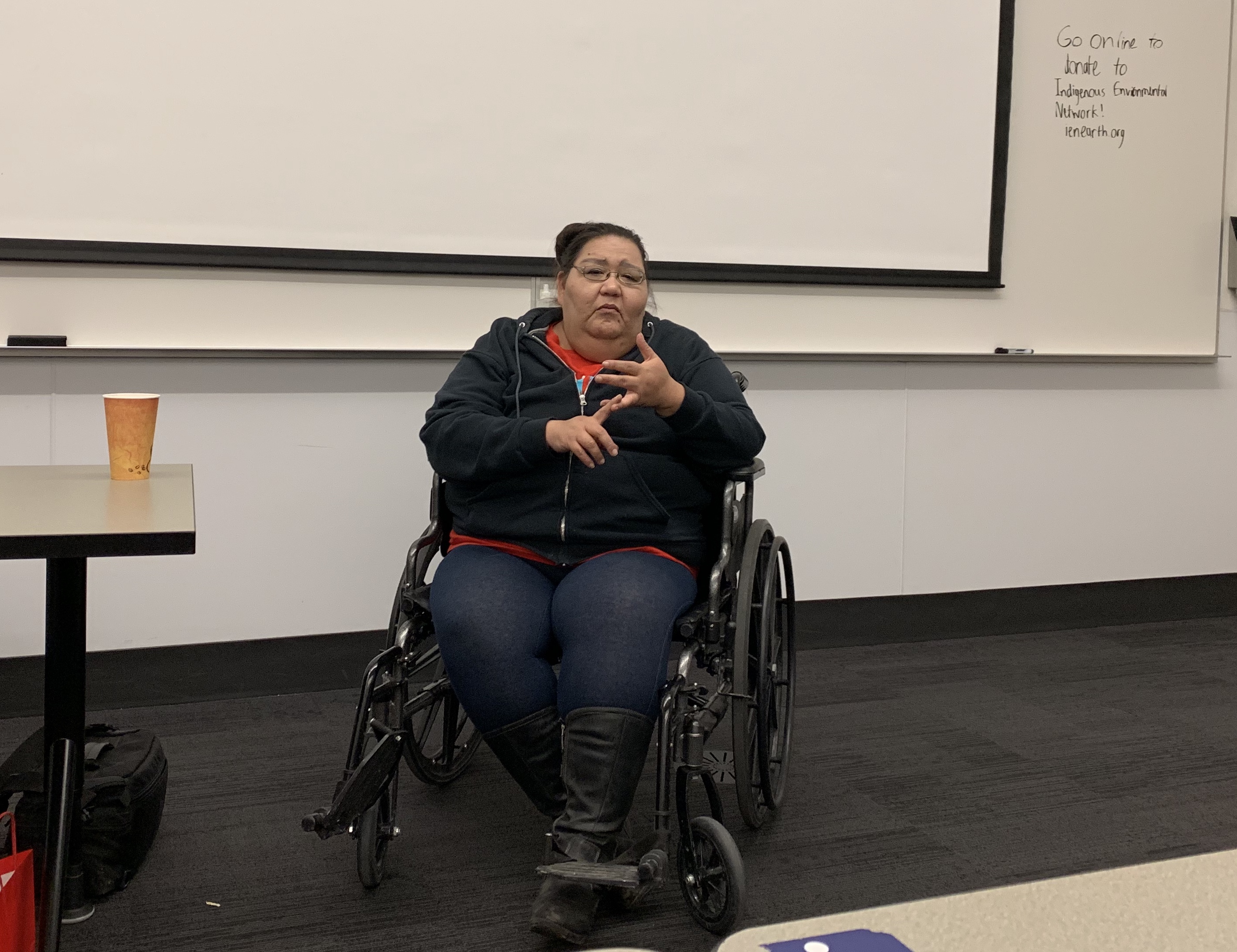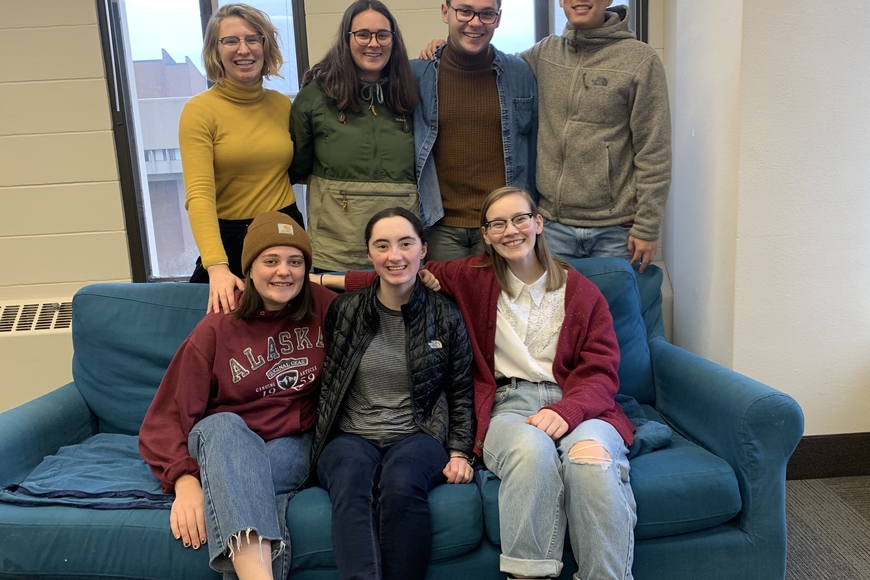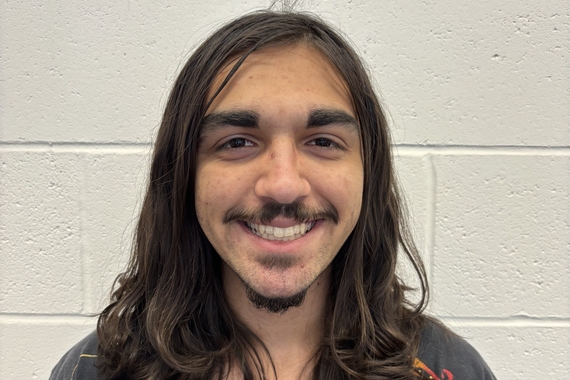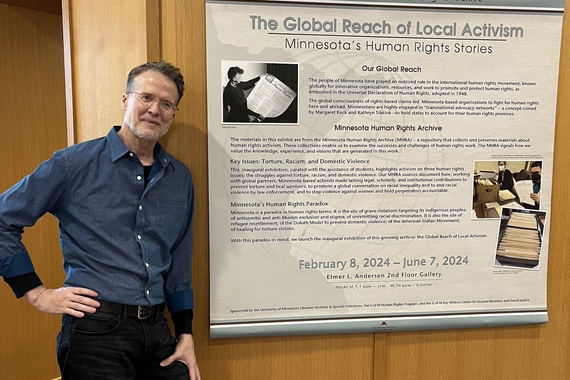The Human Rights Student Association hosts Human Rights Week
This past week, The Human Rights Student Association (HRSA) hosted their annual Human Rights Week in honor of the UN holiday on December 11th, International Human Rights Day. This year’s theme was Climate Change, with three events that focused on Indigeneity, Forced Migration, and Right to Water. Each event had around 30 guests, who came excited to hear about the subject matter and left enthused about all they had learned. All the lectures included delicious food from local caterers, such as fry bread tacos from Pow Wow Grounds.
The Climate Change + Indigeneity event was the most popular of all three, which featured Joye Braun from the Cheyenne River Sioux Tribe. Joye is a Standing Rock activist and a frontline community organizer with Indigenous Environmental Network, a network that advocates for the rights Indigenous communities all over the world. She shared stories from her work at protests and her life experience, along with a variety of issues that Indigenous communities face. She was the first person to camp at Standing Rock, and has spent the last 50 years of her life defending the land. Additionally, she spoke about the survival skills of Indigenous people, who have survived an ongoing genocide in the U.S. for the last 500 years. She spoke about the traumas that Indigenous women in particular face, from forced sterilization to a rampant epidemic of disappearances and murders, which rarely receive media coverage. Research found that there were 5,712 cases of missing and murdered Indigenous women and girls in 2016. Joye connected her defense of the land from extractive industries to this horrific statistic; wherever there are extractive industries, the rates of missing and murdered Indigenous women go up. There have been 500 cases of women missing on the highway of tears near Alberta, which runs through the oil patch.

The Climate Change + Forced Migration featured a panel of four experts in a range of issues, from environmentalism, to refugee resettlement, to immigration law. We were joined by Dr. Linus Chan who works in immigration law at the Law School, Micaela Schuneman, the Director of Refugee Services at the International Institute, Dr. Kale Fajardo from American Studies, and Dr. Christine Marran from Asian and Middle Eastern Studies. At this event, we learned that we are currently seeing the highest level of displaced persons on record - 25.9 million. Of this number, only around 90,000 of those people are able to get asylum in any country, which is just a fraction of those who are wanting to leave on account of persecution. Dr. Fajardo explained the various causes that force people to leave: rising sea levels, extreme weather, scarcity of water - he uses the term environmental migrants to describe people who are forced to move due to these causes. Dr. Linus Chan emphasized that environmental migrants do not qualify to receive asylum, and there are hardly any legal mechanisms in place for people fleeing environmental catastrophes. He stated that the original writer of U.S. immigration law was a white supremacist who favored white immigrants over black and brown people, and his bigotry is reflected in our immigration policies today.
At the Climate Change + Right to Water event, HRSA hosted Professor Michael Goldman from Global Studies and Sociology. Professor Goldman covered a range of issues such as the interconnectedness of water, commoditization of water, and the challenges that primarily black and brown communities face accessing clean water as a result of climate change. He cited Indigenous movements in the U.S. and in Latin American that have combated the privatization of water - a process called remunicipalization - from Standing Rock, South Dakota to Cochabomba, Bolivia. He emphasized that water is a basic human right, and that the commoditization of water is used as a weapon against poor communities. Only 16 countries have declared the universal right to water in their constitutions – i.e. no privatization or corporatization of water - and the U.S. is not one of them. Professor Goldman also debunked the myth that overpopulation is a cause of climate change: if the poorest 3.3 billion people did not move, produce, or consume at all, the great acceleration would not slow down at all.
The Human Rights Student Association was honored to learn from a variety of experts this week, and are incredibly grateful to have held such a successful Human Rights Week which featured moving lectures from these dynamic and thoughtful speakers. They look forward to next semester’s events, and would be honored to host the same speakers for further discussions in the future.



